Popeye (1980)
“I yam what I yam and I yam what I yam that I yam.”
|
Synopsis: |
|
Genres, Themes, Actors, and Directors:
Review: Meanwhile, Williams himself is fine and believable (if oddly restrained) in the title role: and other supporting actors — including Altman’s own grandson as Swee’ Pea, and Paul Dooley as Wimpy — are nicely cast as well. Wolf Krueger’s production design is the second primary reason to check this film out. Built on the island of Malta (and apparently still in existence as a significant tourist attraction), the set is a sight to behold, effectively portraying Sweet Haven as a quirky, ramshackle alter-universe. Where the film stumbles, ironically, is in its faithfulness to its comic origins. While there’s something undeniably tickling about seeing these 2-D characters made manifest (at least for fans of the original Fleischer shorts, like myself), the storyline — including a kidnapping of Swee’ Pea by Bluto (Paul L. Smith), and Popeye’s weird reconciliation with his absentee father: — eventually devolves into too much slapstick for its own good. Meanwhile, the songs (all written by Harry Nilsson) are decidedly hit-or-miss, with a number of them instantly forgettable. However, when Olive sings one of the more memorable tunes — “He’s Large” — in defense of her choice in beaus, and repeatedly states, “He may not be the best/But he’s large/And he’s mine”, one simply can’t help giggling. Redeeming Qualities and Moments: Must See? Links: |
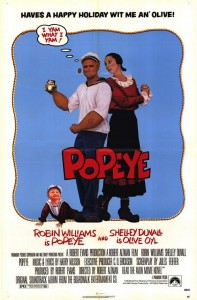
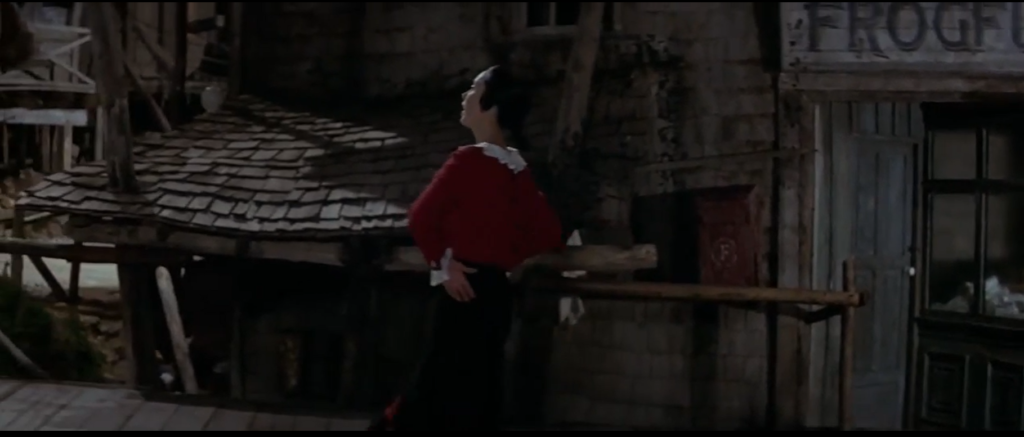
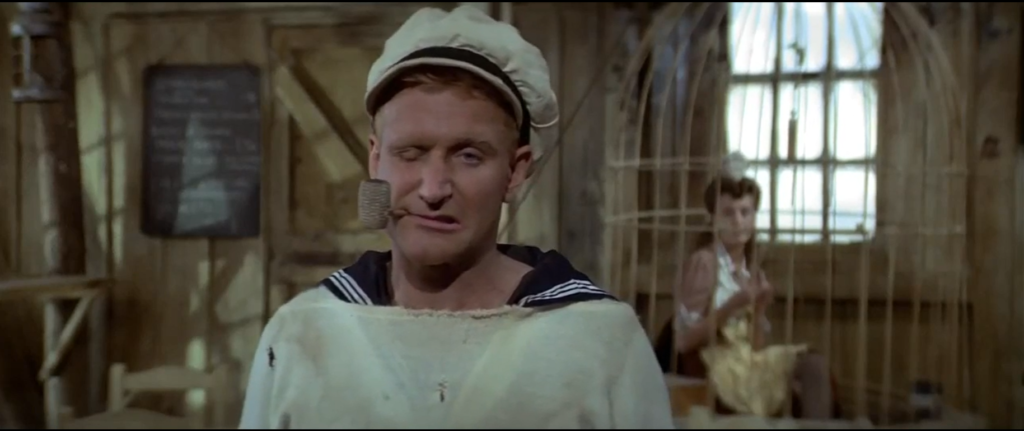
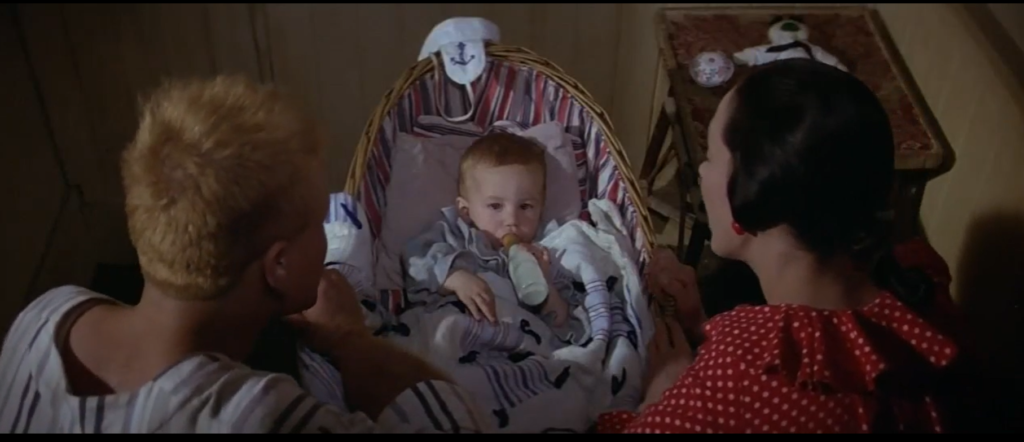
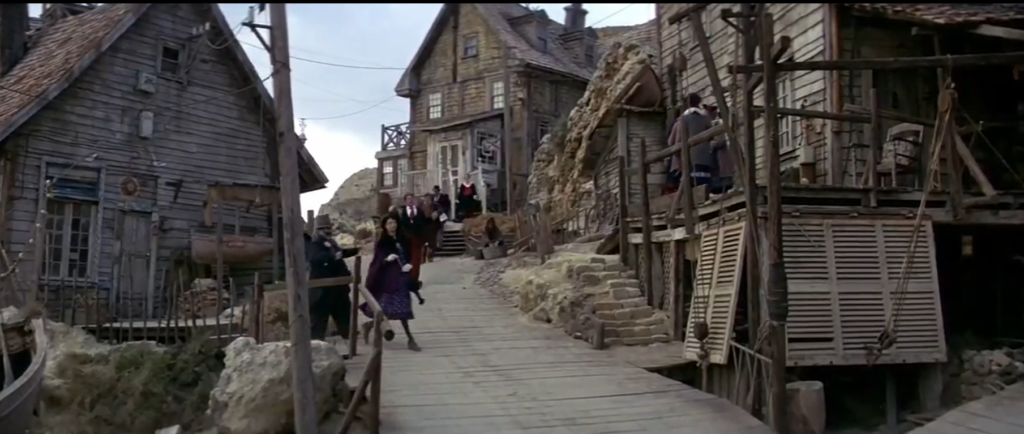
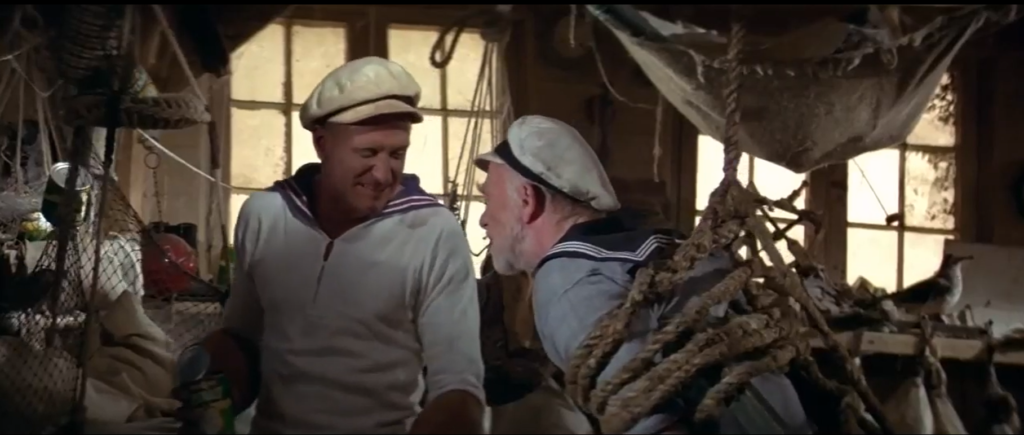
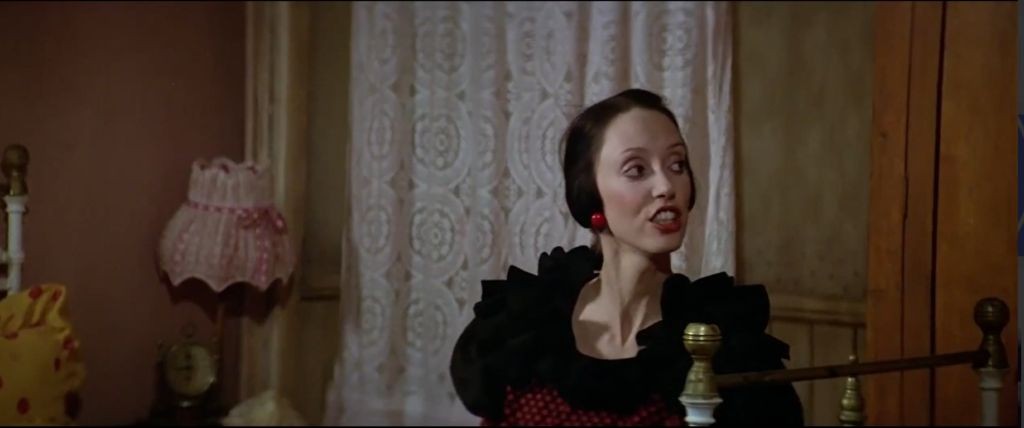
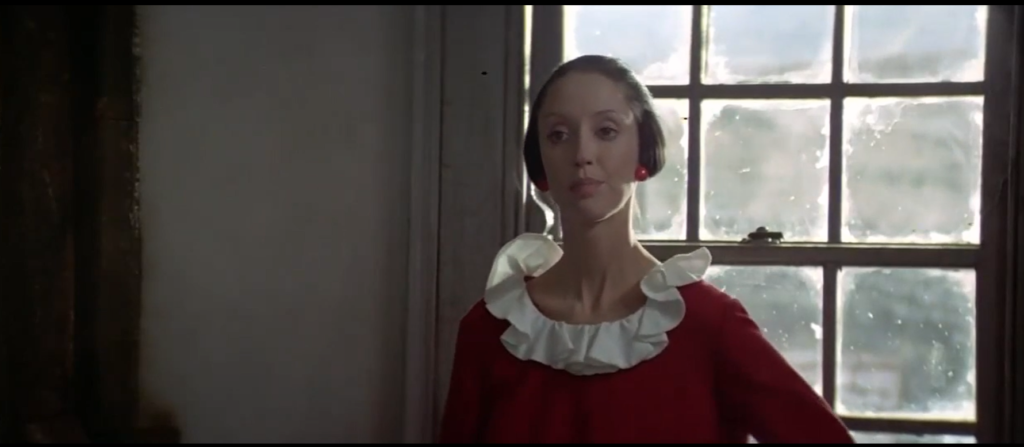
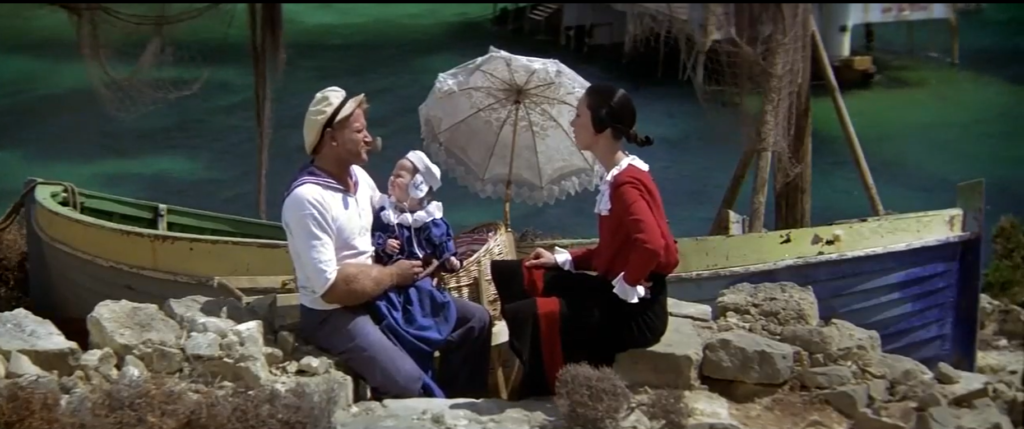
One thought on “Popeye (1980)”
Not a must. I tend to agree that it is a sleeper – in a more literal sense.
I saw this on release and, having seen it again, my opinion hasn’t changed in the least. For me, Altman can go from great to watchable to misguided. ‘Popeye’ goes in the latter group.
It doesn’t seem to ever establish a workable tone and, as a result, it meanders here and there in a wobbly fashion…interminably. (One really can’t detect anything of Jules Feiffer in the screenplay and, generally speaking, the Nilsson songs are labored.)
Duvall is more than fine, Williams is somewhat effective (and not showy, always a plus with him) but, alas, neither can save the film or make it worth recommending. The rest of the cast (including some normally wonderful character actors) seem quite game for the project but simultaneously befuddled.
Altman was either the wrong director – or it’s possible that the characters simply weren’t crying out for the big-screen transition.
Immensely forgettable.